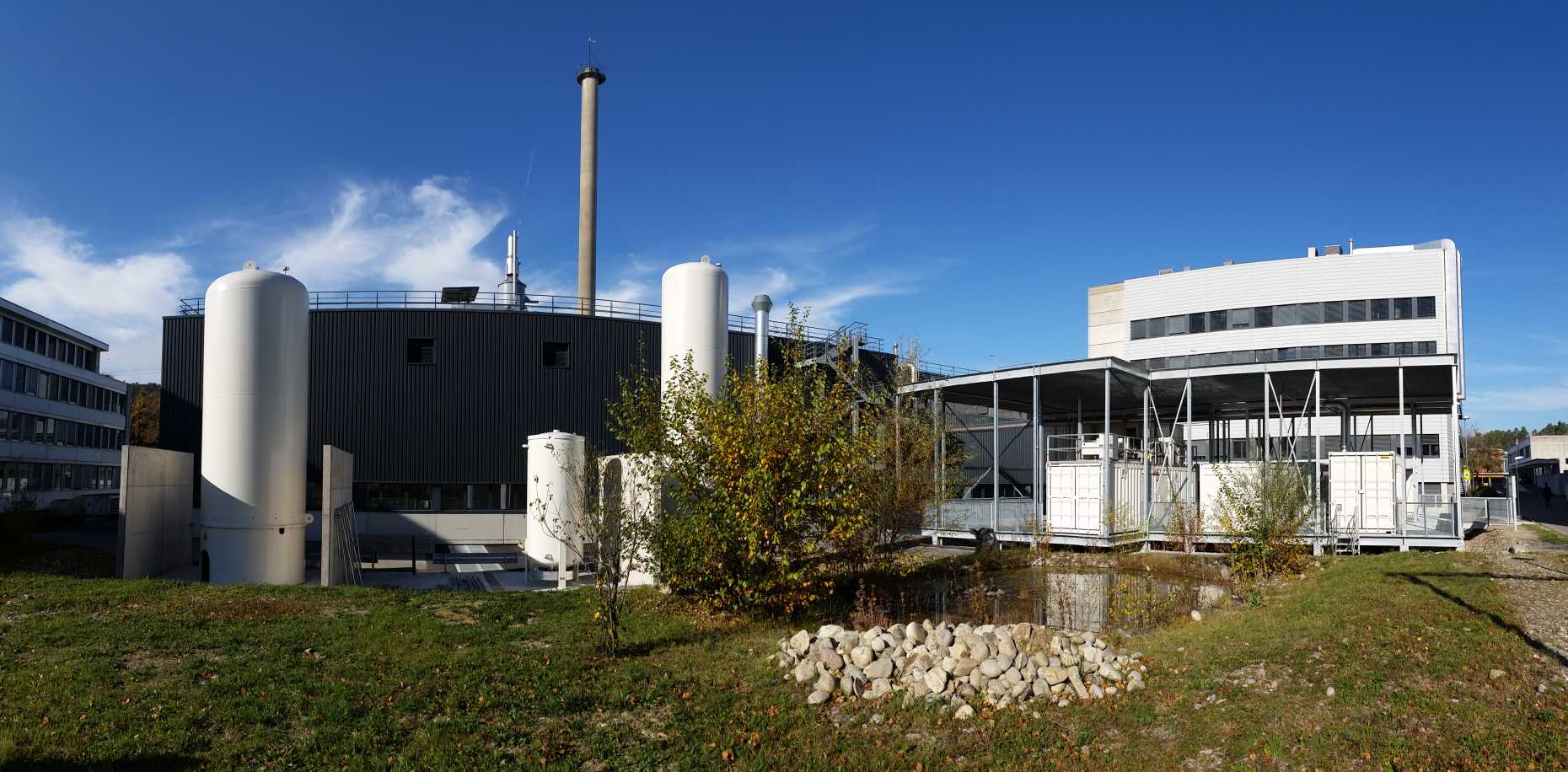Energy System Integration Platform goes into operation
Until the year 2050, the Swiss energy system is set to be restructured. The integration of electricity from photovoltaics and wind presents a major challenge to the power networks. With the Energy System Integration (ESI) Platform, an experimental platform is coming on line where promising approaches to the conversion and storage of renewable energy are brought together.
With the ESI Platform on the premises of the Paul Scherrer Institute (PSI), a facility has been set up with which integrated storage concepts can be demonstrated and which make key aspects of the Energy Strategy 2050 visible and tangible.
Power-to-gas technologies are central to the ESI Platform. They enable surplus electric energy to be converted into gaseous energy carriers such as hydrogen and methane. These fuels can be stored for a long time and transported over long distances. On demand, they can be converted back into electric power or heat or be used as chemical feedstock or as transportation fuels.
The ESI Platform allows investigating the complete system behavior in all its complex interactions on a pilot scale (100 kW). The goal is to probe the technical limits, as well as to figure out cost reduction potentials and scaling rules. Research groups from the SCCER Heat and Electricity Storage and SCCER BIOSWEET (for bioenergy) will test newly developed technologies on the ESI Platform. By trying out different variants of the power-to-gas concept, researchers can test which variants enable particularly efficient energy use. Hydrogen as an energy carrier is an essential building block of all power-to-gas plants. As transportation fuel it could contribute to the decarbonisation of the mobility sector. Methane synthesis - from resources such as biogas, syngas or carbon dioxide - will be investigated as well.

The ESC member involved in this project is Prof. Alexander Wokaun, head of external page Energy and Environment Research Division (ENE) at PSI.
Research at PSI comprises all aspects of human energy use, with the ultimate goal of promoting development towards a sustainable energy supply system. Technologies are being advanced for the utilization of renewable energy sources, low-loss energy storage, efficient conversion, and low emission energy use. Experimental and model-based assessment of these emissions forms the basis of a comprehensive assessment of economic, environmental and social consequences, for both present and future energy supply systems.